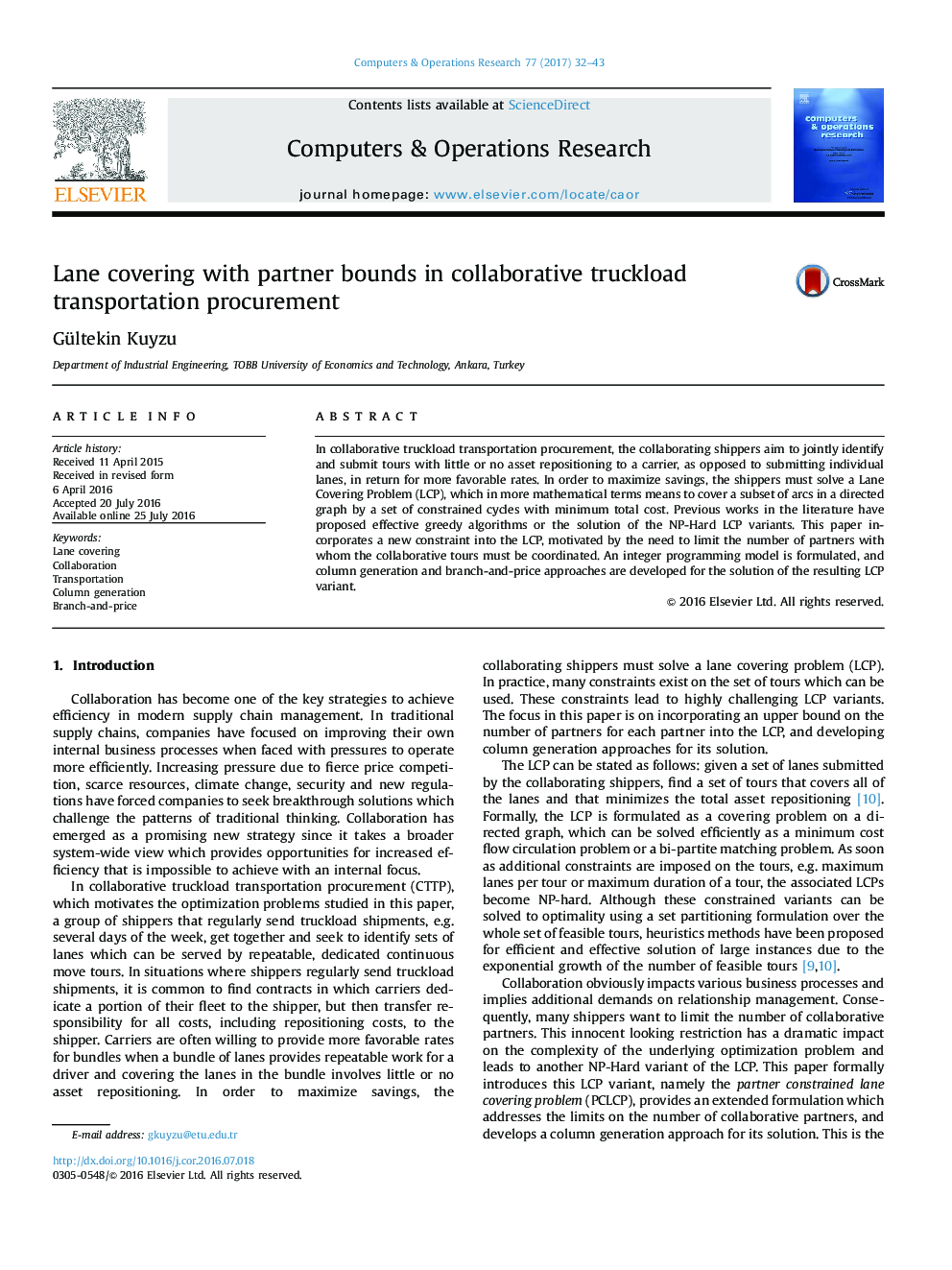| Article ID | Journal | Published Year | Pages | File Type |
|---|---|---|---|---|
| 474550 | Computers & Operations Research | 2017 | 12 Pages |
•Lane covering problems (LCPs) arise in collaborative logistics.•Partner Constrained LCP (PCLCP) is introduced and shown to be NP-Hard.•A set partitioning type integer program is formulated.•Column generation and branch-and-price approaches are developed.
In collaborative truckload transportation procurement, the collaborating shippers aim to jointly identify and submit tours with little or no asset repositioning to a carrier, as opposed to submitting individual lanes, in return for more favorable rates. In order to maximize savings, the shippers must solve a Lane Covering Problem (LCP), which in more mathematical terms means to cover a subset of arcs in a directed graph by a set of constrained cycles with minimum total cost. Previous works in the literature have proposed effective greedy algorithms or the solution of the NP-Hard LCP variants. This paper incorporates a new constraint into the LCP, motivated by the need to limit the number of partners with whom the collaborative tours must be coordinated. An integer programming model is formulated, and column generation and branch-and-price approaches are developed for the solution of the resulting LCP variant.
